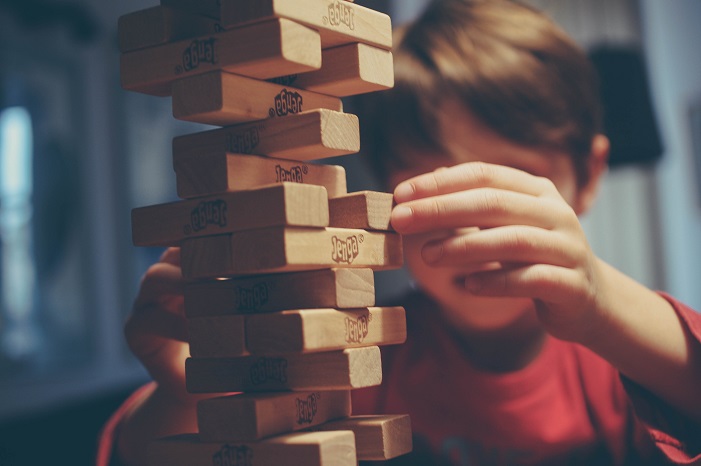By Alyssa Meuwissen, PhD, Research Associate, Center for Early Education and Development
Families of children who will be starting kindergarten this fall may look to the new school year with a mix of apprehension and excitement amid the COVID-19 pandemic. There are still so many unknowns about the 2020-21 school year. Parents may also have some specific questions about school readiness. Perhaps their children were attending preschool up until recently. Maybe their schedule included sports, music, and play groups—activities that are likely much more limited under a stay-at-home order.

Parents may wonder what they can do to help prepare next year’s kindergarteners at home. At the same time, they may also be bombarded with well-intentioned resources for keeping their children occupied; just sorting through them can feel like a full-time job! The good news is that parents can help with both academic and social skills at home. Even better, kindergarten readiness doesn’t have to be another onerous item on your to-do list. Instead, it can be integrated into your child’s everyday activities, including play.
Defining kindergarten readiness
How is kindergarten readiness defined? This term can be broken down into four basic categories of skills.
Literacy: All skills underlying reading. This includes recognizing and writing letters or words and knowing the sounds letters make. It also involves being able to recall and tell stories and taking an interest in books and reading.
Numeracy: Pre-math skills like recognizing numbers, counting, making comparisons such as less or more, ordering items based on size, matching shapes, and identifying patterns.
Self-regulation or executive function: Skills that allow a child to work toward a goal, such as planning ahead, identifying and correcting mistakes, controlling impulses, and persevering through frustration.
Social-emotional skills: Knowing and following the social conventions of interacting with teachers and peers, such as listening to others, sharing, and asking others to join in play.
In this time when enrichment opportunities are more limited than usual and parents are often meeting the demands of work and parenting simultaneously, play can be used as a crucial tool for ensuring children are still practicing school readiness skills.
“Play is often talked about as if it were relief from serious learning. But for children, play is serious learning. Play is really the work of childhood.”
Fred Rogers
Literacy and numeracy
Literacy activities don’t need to be limited to activities that require sitting still! Your child can still absorb the words in books while acting out the story or rolling on the floor. One clever idea for active youngsters is to work on the alphabet by writing their name and other words in sidewalk chalk and asking them to name (or shout!) the letters as they jump from one to the next.
Play is a crucial context for building vocabulary, as children are more likely to learn new words when they’re presented in play. Build on your child’s interests. Are they interested in animals? Talk about their play using words they may not know yet, like “mammals,” “talons,” or “herd.” Highlight the fun of language by thinking up rhymes or prompting your child to do so. You can change up the words of songs your child knows well, maybe making the song about them!

Pre-math skills can also be incorporated into play and are more appealing when they are applied to your child’s interests. To build a Lego house that is the same height on all sides, a child will need to practice counting. Stuffed animals can be categorized, for example into a family of dogs and a family of cats, or lined up from smallest to largest. Children love to “hunt and gather” in outdoor play. They could collect 10 pinecones or pick 15 dandelions or sort rocks into piles of large and small.
“In play a child always behaves beyond his average age, above his daily behavior; in play it is as though he were a head taller than himself.”
Lev Vygotsky
Executive function and social-emotional skills
Playing pretend allows children to process their emotions, because they are able to take an outside view rather than being overwhelmed by the experience itself. Pretend play is also a unique realm where children have control over how they wish things were. What does your child talk about when they pretend? Being able to make believe that, for example, the playground is open, helps children to express and have control over their feelings about playgrounds being closed. Sometimes having an adult join in a pretend world is an important acknowledgement that the child’s feelings are valid.
To build executive function skills, it’s important for parents to let children lead the play. Children don’t get to make many big decisions in the “real world,” so pretend play is a chance for them to make a plan and discover the consequences. Encourage your child to verbalize a plan. For example, “Monkey will eat breakfast, then take a bath, then get dressed, then take a nap.” Or else, “I will build a rocket that has three windows.” Then help them remember and carry out their plan. For activities where there’s a “right answer,” such as putting together puzzles, think about how you can avoid correcting children’s mistakes. Instead, try to guide them through identifying and correcting their own mistakes. Teaching kids overall strategies, such as building the corners and edges of the puzzle first, helps them become more independent.
One way to help them practice the social skills that they’ll need when they enter kindergarten is to harness play to work through imagined scenarios. If you want to work on sharing with your child, build on what they are playing. For example, suggest that one doll wants to play with the other doll’s toy. You can ask your child about how the dolls are feeling. What might they say to each other? How might they work out sharing the toy?
You can also encourage children to “play school” as kindergarten approaches. You may notice them using puppets or stuffed animals to work through questions and concerns they have about starting school, and you can follow suit, providing information and reassurance about what to expect through the medium of pretend play.
We all know that reading to children is an important way to support budding readers, and choosing books about making friends and resolving conflict can help develop social-emotional skills as well as literacy. I’m fond of two series from Free Spirit Press. The Best Behavior series includes titles such as Hands Are Not for Hitting and Words Are Not for Hurting that are appropriate for the very youngest children. Free Spirit’s Learning to Get Along series offers titles like Share and Take Turns and Join in and Play. Another fun pair of picture books are Me Too and Me, Me, Me by Annika Dunklee from Kids Can Press. These stories are aimed at slightly older children but their relatable characters and social situations would also appeal to the pre-K set.
Using screens intentionally
Many parents are relying on screen time more than they otherwise might as a way to get things accomplished with the whole family at home. Instead of feeling guilty, why not be intentional about which programs and games children engage with? High-quality TV shows and games do exist that entertain and teach at the same time. PBS Kids offers ad-free shows and games to suit a variety of ages and interests. Most of their apps are free of charge, including the content-rich PBS Kids Video and PBS Kids Games apps. Consult the independent nonprofit organization Common Sense Media for reviews and recommendations for all kinds of media on many different platforms.
School readiness activities don’t have to be complex or time-consuming. Meet children where they are—at play! Observe your child at play. What school readiness skills are they already using? What do they love to play? How can you make your child’s play a little more fun, a little more interesting, and a little more educational by adding some new ideas?



